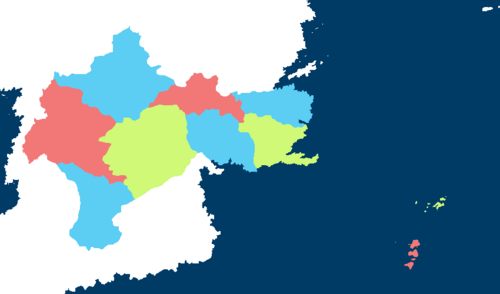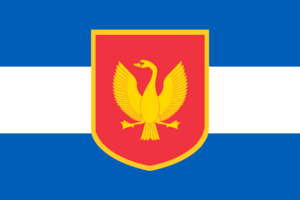Ăpalia
Ăpali Union Kupu Ăpali | |
|---|---|
 Political map of the Ăpali Union | |
| Capital | Isagu |
| Official languages | Ăpali |
| Recognised national languages | Ăpali |
| Recognised regional languages | Anta |
| Ethnic groups | Ăpali, Anta |
| Demonym(s) | Ăpali |
| Government | Federal Republic |
• President | Sohen Hoseci |
| Population | |
• Estimate | 212,850,000 |
• Density | 44/km2 (114.0/sq mi) |
| Currency | Boreal Mark |
| Driving side | right |
History
A Former Colony (1706-1923)
Foundations of a New Land
In the year 1706, a group of intrepid pioneers from the Shasvin Empire set foot on the shores of Cikras, laying the cornerstone for the city of Isagu. Their ambitious spirit drove them to expand further, venturing into the unexplored depths of the continent. By 1707, they had established a firm foothold, gradually pushing through the dense rainforests as they ventured deeper into the heart of this new land.
A Clash of Cultures
As the Shasvin colonists continued their inland expansion, their encounters with the indigenous Anta people took a dramatic turn in 1711. Up until that point, the empire had met little resistance from the native inhabitants. However, as they reached the majestic mountain ranges, they found themselves faced with the unwelcoming Anta. A deep divide emerged, fueled by conflicting desires for control over the land and its valuable resources.
The Anta Conflict and Annexation
Tensions between the Shasvin Empire and the Anta people escalated, culminating in the outbreak of the first Anta conflict in 1815. Despite their technological advantage, the Shasvin forces faced a formidable opponent in the Anta, who possessed an intimate knowledge of the rugged terrain. After years of conflict, the war finally came to an end in 1822, with the Shasvin Empire emerging victorious. The mountainous regions were annexed, firmly establishing Shasvin rule over the Anta people. While the Anta lost their autonomy over the land's resources, their distinctive culture and language were respected and not persecuted.

